Journey to Mars: The Next Great Leap in Mankind's Quest for Discovery
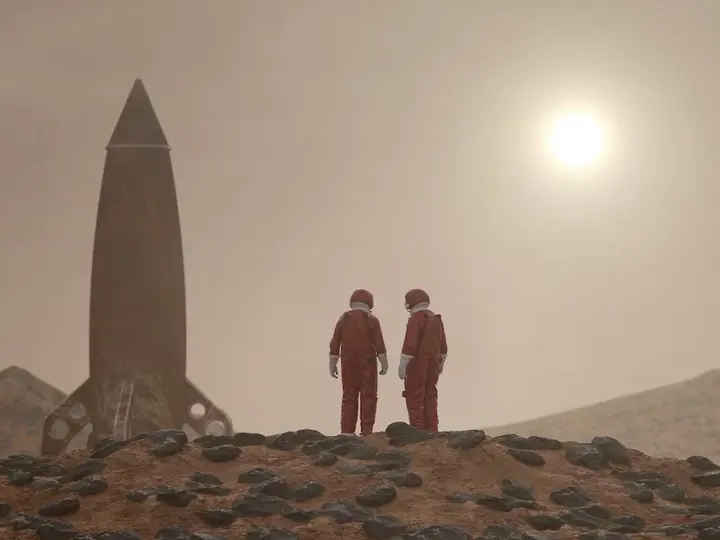
A trip to Mars marks the next great leap in humanity's quest for discovery. Humans have always had the curiosity and desire to explore beyond Earth's borders, and there has never been a more attractive and challenging goal than Mars. Unlike other planets in the solar system, Mars has a remarkable resemblance to Earth in terms of its environment and life opportunities, and this represents an ideal opportunity for humanity to explore, discover and establish a civilization in a new place further away than ever before.
Show key points
- Mars is considered the most promising and Earth-like planet in the solar system, making it an ideal candidate for future human exploration and settlement.
- Humanity's deep-rooted curiosity and desire to uncover the unknown continue to drive the ambition of reaching Mars despite the doubts and challenges.
- Scientific discoveries on Mars, such as evidence of water and geological features, could help explain planetary formation and possibly the existence of life beyond Earth.
- ADVERTISEMENT
- The immense technical challenges of traveling to and surviving on Mars—like radiation protection, resource sustainability, and communication—require innovative solutions and global collaboration.
- Previous Mars missions, such as Viking and Perseverance, have laid crucial groundwork and inspired continued progress toward manned missions and eventual colonization.
- Investing in a Mars mission offers not just scientific gains but also economic potential, as space exploration technologies often lead to transformative applications on Earth.
- Though establishing a human civilization on Mars poses significant environmental and psychological challenges, it remains a realistic and increasingly achievable goal through advancing technologies.
1. Mars: the neighboring planet that humanity cannot ignore.
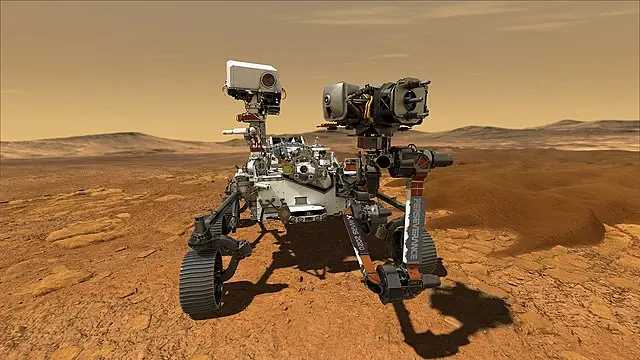
Speaking of a journey to Mars, the Red Planet is an irresistible destination for exploring humanity. It is the closest neighbor planet to Earth and the other most habitable planet. Mars raises curiosity and questions among researchers and explorers alike, and represents a tremendous opportunity to understand the origins of life and the future of humanity in space.
Recommend
Mars' gravity comes from its ecological similarity to Earth. It has a thin atmosphere and frozen water at its poles, suggesting there are real chances of life on its surface. In addition, Mars has similar terrain and forms to those on Earth, giving us hope that it may be a suitable place for human life.
Historically, there have been many missions and reconnaissances carried out to explore Mars. Among them are the Viking and Perseverance missions, which explored the surface of Mars and collected valuable data about it. These previous missions encouraged scientists and explorers to continue research and development to make a trip to Mars a reality.
A trip to Mars is a formidable technical challenge. Because of the enormous distance and physical challenges to get there and back, advanced technologies and innovations are required. However, there is a global movement towards this goal, with several space agencies working on developing spacecraft and new technologies to travel to Mars.
Besides the scientific benefits of Mars exploration, there are also enormous economic and technological opportunities in investing in a journey to Mars. The discoveries and technologies used on this journey may be transformed into tangible benefits on Earth, such as the development of space technology and the utilization of natural resources on Mars.
Given these exciting factors and discoveries, Mars remains the neighboring planet that humanity cannot ignore. The human spirit of exploration will continue to seek to explore the unknown and new challenges, and a journey to Mars marks the next great leap in this ongoing quest.
2. Reasons for humanity's interest in Mars: suspicions and hopes.
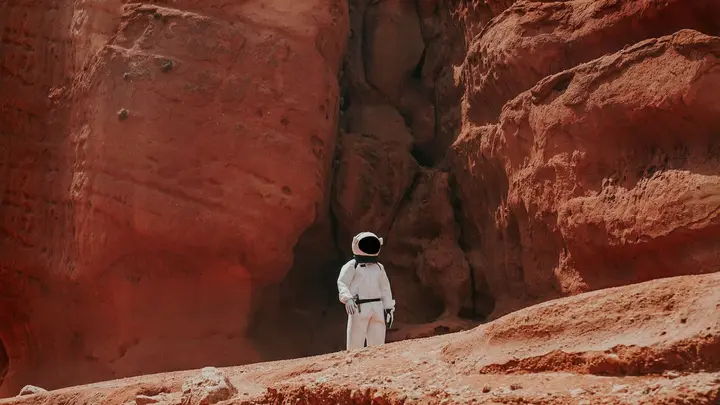
In a world driven by curiosity and an eternal desire to discover the unknown, there has never been a planet that interests humanity more than Mars. Although the Red Planet appears to be small from a distance and cannot live as easily as we do on Earth, it carries with it many suspicions and hopes that make it the focus of our attention.
Suspiciously, there are those who doubt the possibility of life on Mars. Despite its remarkable similarity in environment and climatic conditions to Earth, some consider it just a barren planet that cannot accommodate real life. But explorers are urged to overcome these suspicions and ask: Could Mars be humanity's second home?
Hopefully, interest in Mars stems from humans' desire to expand humanity and find solutions to the challenges facing us on Earth. The Red Planet has great potential to absorb humans and provide the mineral wealth and resources necessary for a sustainable life. Mars is a potential source of water, air and energy, which could change the future of humanity and open up new horizons for scientific and technological development.
The hope of reaching Mars reflects our belief in our technological and scientific capabilities in overcoming space challenges, which inspires us to work hard and work together to achieve this great goal. Ultimately, hope and suspicions about Mars ignite humanity's adventurous spirit of exploration, the driving force for humanity's next great leap in humanity's quest for discovery.
3. Technical obstacles that hinder the journey of humans to Mars.
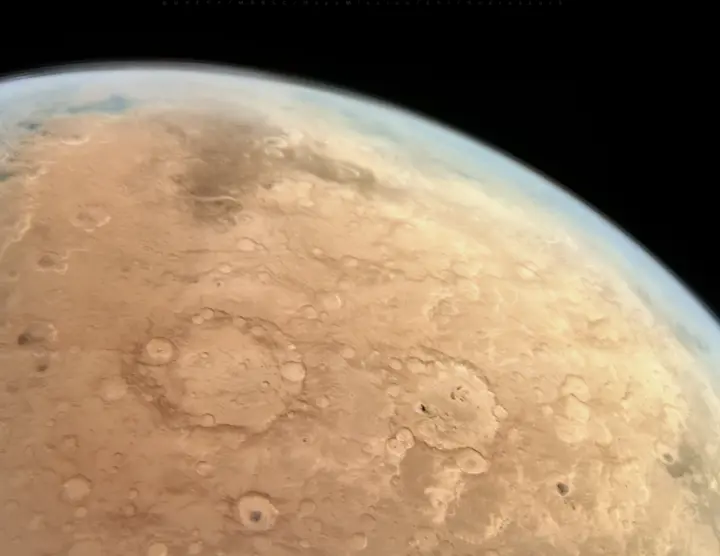
When we talk about the human journey to Mars, we must realize that there are many technical obstacles to achieving this great dream. The road to Mars is not easy, and requires overcoming significant technical challenges to ensure the safety and success of the flight. Here we take a look at some of the key technical hurdles facing humans' journey to Mars:
1. Transportation and sustainability: Transport to Mars is the biggest challenge on this journey. Humans need sophisticated and efficient transportation to transport them safely across the vast distances between Earth and Mars. In addition, a reliable sustainability system must be in place to support energy, food and water during the journey and establish long-term life on Mars.
2. Radiation protection and low gravity: Radiation and low gravity on Mars are major challenges on a journey to this planet. Strong radiation in remote space can cause serious health problems for travelers, and technological solutions must be found to provide protective shields and reduce radiation exposure. In addition, gravity compensation systems must be developed to minimize the harmful effects of low gravity on the human body.
3. Communication and communication: Communication and communication are crucial to the success of the human journey to Mars. Constant contact between astronauts and the support team on Earth, between astronauts on Mars and humanity as a whole is vital to the mission's success. It is necessary to develop advanced communication technology that can provide stable and secure communications over the vast distances between Earth and Mars.
4. Engineering and structural techniques: To achieve the goal of establishing a human civilization on Mars, innovative engineering and construction techniques must be developed. For example, humans need sustainable infrastructure and facilities that live beneath the surface of Mars and provide the necessary protection and comfort. Advanced building methods must be developed that use local resources and adapt to the harsh conditions of Mars.
5. Robotics and Artificial Intelligence: Advanced technology in robotics and artificial intelligence can play a crucial role in achieving a successful journey to Mars. Intelligent robots are a necessary aid for humans in exploring Mars and preparing the ground for human access. Robots with sophisticated capabilities must be developed to move, explore and collaborate with humans in a difficult and unfamiliar environment.
In the end, despite all the enormous challenges facing the human journey to Mars, there are still a lot of scientists, engineers and astronauts working hard to overcome these obstacles and achieve this great dream. A journey to Mars will mark a turning point in human history, bringing with it new discoveries and technologies that will change the face of the world. Let us eagerly await this great leap and look forward to what the future will hold.
4. Scientific and exploratory opportunities offered by Mars.

Mars gives humanity enormous scientific and exploration opportunities to learn about the universe and understand it more deeply. It is a unique and exciting environment for exploration and scientific research, and offers the possibility of vast discoveries in various fields. Here we will look at some of the scientific and exploration opportunities that Mars can offer:
1. Study the formation of Mars and its geological history: Mars is a natural laboratory for understanding the formation and evolution of planets. By studying the formation of Mars and analyzing its geological structure, we can obtain valuable clues about the history and process of planetary formation, and this helps us understand the formation of the Earth as well.
2. Search for past or current microbial life: Strong evidence has been found to suggest that Mars had a life-friendly environment in the past. If we find traces of previous microbial life on Mars, we will have further evidence of the existence of life in the universe. Even in the absence of previous microbial life, having an active or probable environment for life will suggest that life may be possible elsewhere as well.
3. Study the conditions of Mars and their impact on humanity: Understanding the conditions of Mars and their impact on the human body is an essential part of any journey to this red planet. These studies could help us develop techniques and technology that allow for the sustainable settlement of humans on Mars, and reduce the impact of extreme conditions on human lives.
4. Explore the side effects of Mars: The search for new resources and minerals on Mars can be beneficial to humanity as well. There may be resources that do not exist on Earth, such as water and precious metals, that could be exploited on Mars for human needs and economic development.
5. Understand more about the universe and where humans are in it: A trip to Mars will contribute to our understanding of the universe and the place humans have in it. By expanding our research and answering big questions like "Are we alone in the universe?" or "Is there another intelligent life elsewhere?" , the Mars journey will contribute to a quantum leap in human understanding.
In the end, a journey to Mars is not just an exploratory adventure, but an amazing opportunity for humanity to learn, discover and advance scientifically. This journey will change the course of history and broaden our horizons, opening the doors to amazing and exciting discoveries that we could never have imagined before. Let us look to the future with optimism and push our boundaries to face the challenges and take advantage of the great opportunities that Mars offers.
5. Establishing a human civilization on Mars: a challenge that is really possible in the future?

Mars, the red planet, may be humanity's ultimate destiny. Its name has been associated with science fiction and interesting questions about the possibility of establishing a human civilization on its surface. This new concept raises questions about the future and the possibility of achieving this great dream.
Establishing a human civilization on Mars is a formidable challenge that requires a lot of careful planning and preparation. Although scientists and astronauts are working hard to develop technology that allows travel and stability on the Red Planet, there are many enormous challenges that must be overcome before we can achieve this dream.
One of the main challenges is the harsh environment on Mars. Its surface is exposed to harmful radiation from the sun and does not have an atmosphere that protects it from cosmic rays and charged particles. These harsh conditions make it necessary to develop advanced technology to protect humans and ensure their survival under these harsh conditions.
In addition, there is the enormous challenge of securing the basic resources for life on Mars. The planet does not contain enough water, air and food to support an entire human civilization. We must be able to provide these resources from external sources or develop technology that allows them to be produced on Mars itself.
Moreover, we face social and psychological challenges. Establishing a human civilization on Mars would be a very isolated experience, as we would live and work in an alien environment that lacks direct contact with Earth. We will have to deal with coping with this radical change in the structure of human life and dealing with isolation and loneliness for long periods.
Despite these many challenges, establishing a human civilization on Mars may be a reality in the future. Constant technological innovations and efforts by astronauts and scientists have brought us closer to achieving this dream than ever before. The establishment of a civilization on Mars would be a tremendous achievement for humanity, opening new doors for scientific exploration and discovery.
In the end, the dream of establishing a human civilization on Mars may be a formidable challenge, but it is not impossible. We live in an age of technology and innovation, and we have the ability to achieve things that were previously unthinkable. Therefore, humanity's future on Mars may be more real than we imagine, and perhaps we will be the generation that will witness this new beginning of human discovery and evolution.
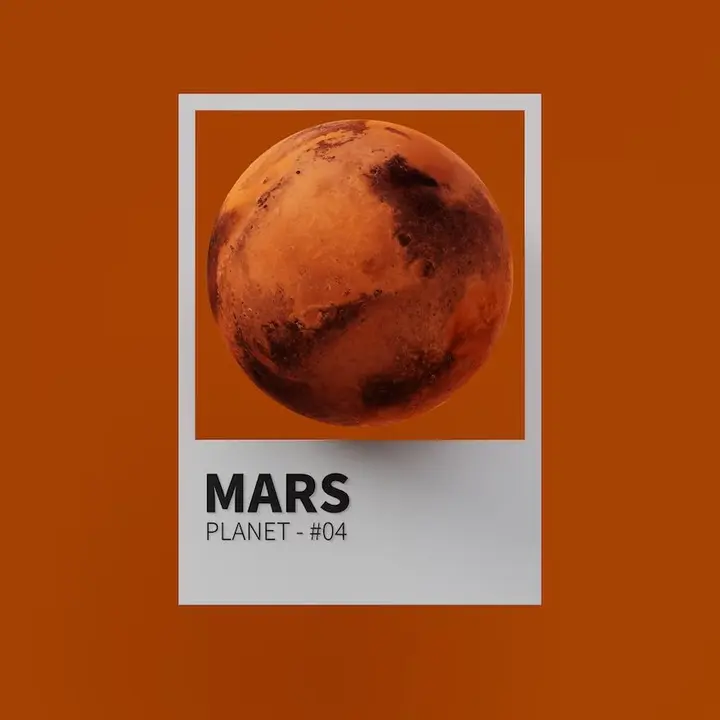
Journey to Mars: The Next Great Leap in Humanity's Quest for Discovery" is an opportunity for humanity to fulfill an ancient dream: reaching distant planets. Today, we are closer to fulfilling this dream than ever before, and the exploration of Mars is a gateway to discoveries and discoveries that will change the course of history and science. Let's prepare for the next great jump, push our boundaries and embark on an unforgettable journey to Mars.
![]()
Time poverty: modern distress and how to escape from its grip
Despite all our modern tech advantages, many feel trapped in a cycle of busyness, constantly short on time. This sense of “time poverty” drains well-being and productivity. The key to breaking free? Align with what truly matters, simplify life, practice mindfulness, and build healthier ways to cope with stress. more- ADVERTISEMENT
![]()
Lebanon's basketball team's success story despite economic turmoil
Lebanon’s basketball scene is thriving, with its national team and clubs like Riyadi and Hikmeh making waves internationally. Despite economic struggles, passionate support from the Lebanese diaspora keeps the sport alive, turning basketball into a powerful symbol of national pride and unity across the country and its communities abroad. more- ADVERTISEMENT
![]()
Iranian carpet industry ... History and economic significance
Persian carpets, woven with stunning detail and rich history, have long symbolized beauty and prestige. Once essential for warmth, they evolved into luxurious art pieces admired in royal courts. Today, they remain a global symbol of elegance and superior craftsmanship, cherished for their unique patterns and cultural legacy. more- ADVERTISEMENT
![]()
Negotiation skills for successful personal and practical relationships
Negotiation isn’t just for business or politics—it’s a vital life skill. It’s about finding win-win outcomes using communication, persuasion, and emotional intelligence. Whether you're a parent, partner, or student, mastering this skill strengthens relationships and helps navigate daily challenges with understanding, planning, and strategic thinking. more- ADVERTISEMENT
![]()
How to behave in a world of professional chaos: a guide to thriving amid uncertainty
Professional chaos can be your stepping stone to growth—embrace change, stay curious, build resilience, and nurture a flexible mindset. Surround yourself with a strong network, seek advice, and don’t forget to take care of yourself. Chaos isn’t the end—it’s the start of something new. more- ADVERTISEMENT
![]()
Integrating AI with Biotechnology – Concerns and Advantages
AI and biotechnology together are changing the game—speeding up drug discovery, improving diagnosis, and creating personalized treatments. They’re also boosting sustainable farming and designing smart materials. While full of promise, there are real concerns about privacy, bias, and job loss that demand careful attention and strict ethical guidelines. more- ADVERTISEMENT
![]()
Things people with emotional intelligence never do
Emotional intelligence helps people understand and manage emotions, leading to better relationships, improved teamwork, and stronger mental health. It can be developed through self-reflection, mindfulness, and active listening. Emotionally intelligent people avoid impulsive actions and build balanced lives with better decision-making and communication. more- ADVERTISEMENT
![]()
Quick tips to become a successful salesman
Success in sales comes from knowing your product, understanding customer needs, and building strong relationships. Always listen actively, communicate clearly, and stay passionate. Keep learning, stay organized, and never fear rejection—it’s just part of the journey to closing more deals and reaching your goals. more- ADVERTISEMENT
![]()
Unexpected reading and writing skills in people with autism
Many non-speaking autistic individuals show surprising reading and writing abilities, revealing untapped literacy potential. Through innovative tests, researchers found that over half could understand written language patterns, challenging long-standing assumptions and opening new paths for communication, education, and inclusion. more- ADVERTISEMENT
![]()
Understanding your leadership style: strengths and weaknesses
Understanding Your Leadership Style: Strengths and Weaknesses more- ADVERTISEMENT





















